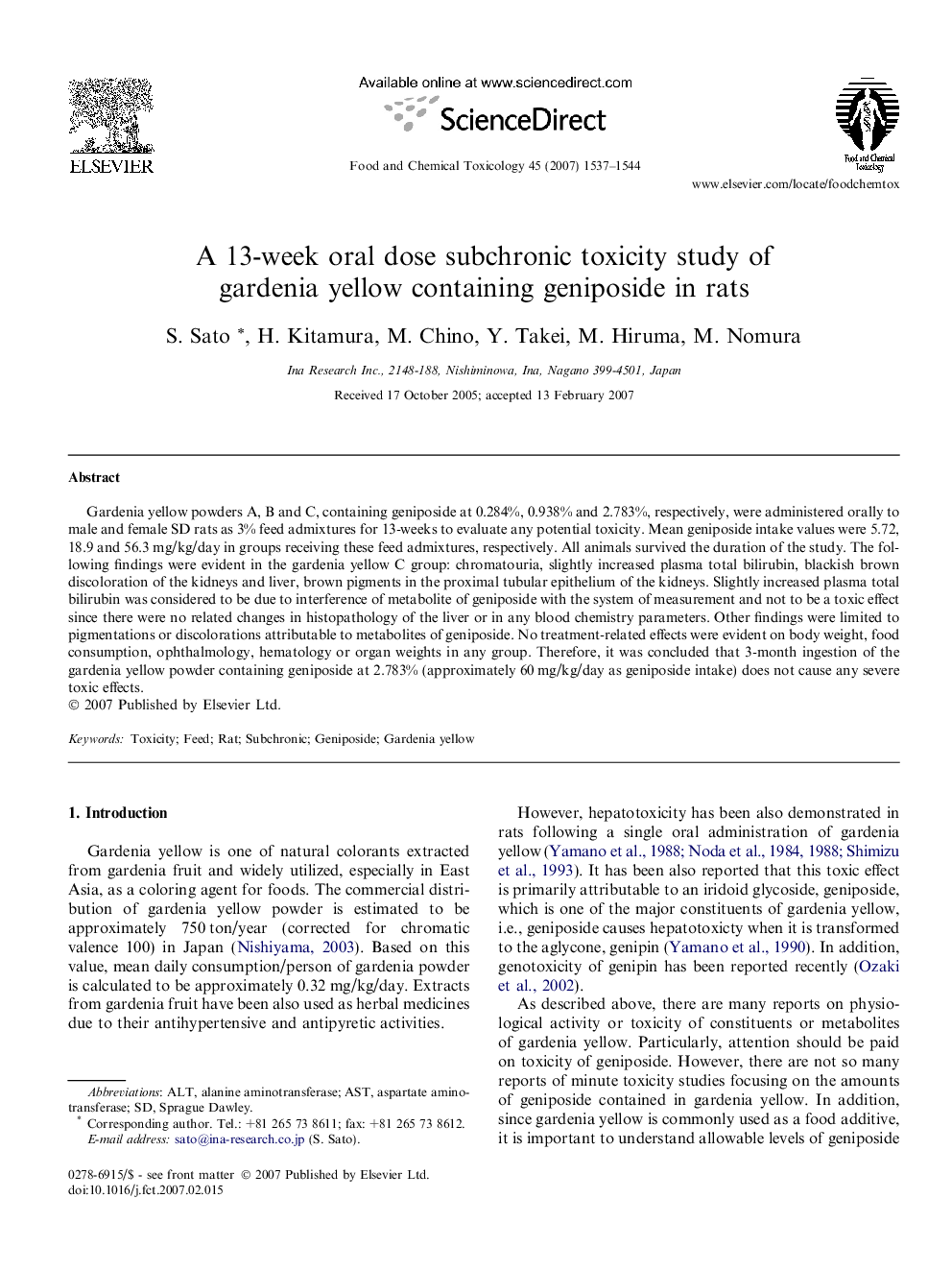| Article ID | Journal | Published Year | Pages | File Type |
|---|---|---|---|---|
| 2587384 | Food and Chemical Toxicology | 2007 | 8 Pages |
Gardenia yellow powders A, B and C, containing geniposide at 0.284%, 0.938% and 2.783%, respectively, were administered orally to male and female SD rats as 3% feed admixtures for 13-weeks to evaluate any potential toxicity. Mean geniposide intake values were 5.72, 18.9 and 56.3 mg/kg/day in groups receiving these feed admixtures, respectively. All animals survived the duration of the study. The following findings were evident in the gardenia yellow C group: chromatouria, slightly increased plasma total bilirubin, blackish brown discoloration of the kidneys and liver, brown pigments in the proximal tubular epithelium of the kidneys. Slightly increased plasma total bilirubin was considered to be due to interference of metabolite of geniposide with the system of measurement and not to be a toxic effect since there were no related changes in histopathology of the liver or in any blood chemistry parameters. Other findings were limited to pigmentations or discolorations attributable to metabolites of geniposide. No treatment-related effects were evident on body weight, food consumption, ophthalmology, hematology or organ weights in any group. Therefore, it was concluded that 3-month ingestion of the gardenia yellow powder containing geniposide at 2.783% (approximately 60 mg/kg/day as geniposide intake) does not cause any severe toxic effects.
